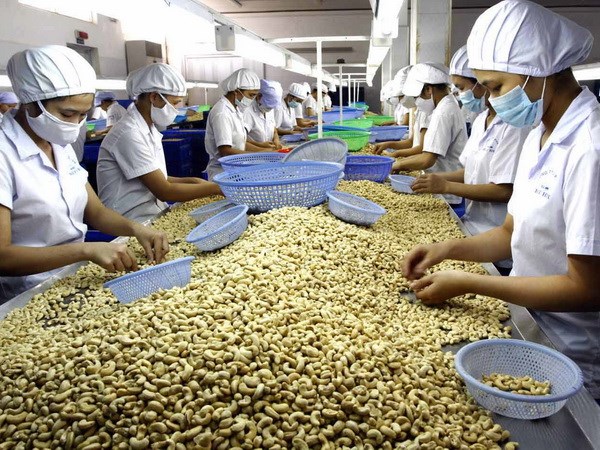In recent years, Vietnam’s food processing industry has been growing strongly, step by step supplying many products with high competitiveness, dominating the domestic market and increasing exports.
Statistics from the Ministry of Industry and Trade show that Vietnam’s annual food consumption is estimated at 15 percent of GDP. Over the past five years, the average annual consumption of processed food and beverages has grown at 9.68% and 6.66%, respectively.
According to forecasts of BMI Research, Vietnam’s food industry is expected to achieve double annual growth in 2015-2020 of 10.9%.
The income of the Vietnamese people is still lower than that of the developed countries, so consumer demand will focus on food and necessities. Investment in food processing industry in Vietnam is considered attractive due to many preferential tax policies such as corporate income tax reduced from 25% to 20%; For projects eligible for investment incentives, enterprises shall also be entitled to tax exemption for a number of years, with a maximum tax exemption for 4 years, a 50% reduction of the tax rate for the following 9 years; Exemption of import tax on technology for production …
Việt Nam’s food processing industry has developed strongly and supplied products with high competitiveness for both domestic and export markets, according to the Trade Promotion Agency under the Ministry of Industry and Trade.
Võ Thành Đô, deputy head of the Department of Agricultural Products Processing and Market Development under the Ministry of Agricultural and Rural Development, said having a diverse source of raw materials for processing food and beverages was an opportunity for firms in the food and beverage sector to diversify their products and satisfy demands from customers, especially young ones.
An abundant source of raw materials, the country’s stable and high economic growth, favourable investment environment, abundant human resources, and good infrastructure at industrial parks are also factors that help attract investors in the sector.
In addition, free trade agreements have opened up opportunities for domestic food firms to enhance exports and attract more foreign investors in the sector.
But to capitalise on the opportunity, local firms need to invest more in deep processing to add more value for the products.
They also need to further improve their production technologies, apply good manufacturing practices and develop close linkages with multinational food processing groups in Việt Nam to shorten the roadmap for them to participate in the global food supply chain, according to experts.
To attract investment and develop the food processing sector in a sustainable manner, Việt Nam needs to create a zoning plan for high-quality material areas to meet quality and hygiene, and food safety standards of the global food supply chain, experts said.
According to the Ministry of Industry and Trade, Việt Nam is among the world’s largest exporters of rice, coffee, pepper and cashew nuts.
Exports of farm produce, especially fruits and vegetables, have seen good growth over the past years, with the products exported to more than 100 countries and territories
